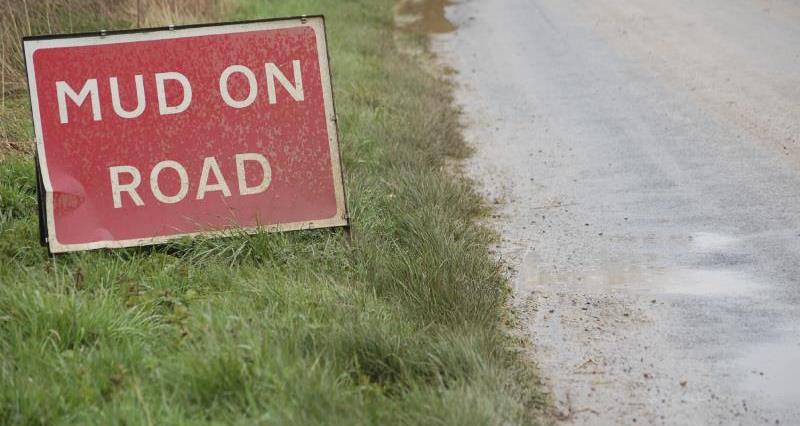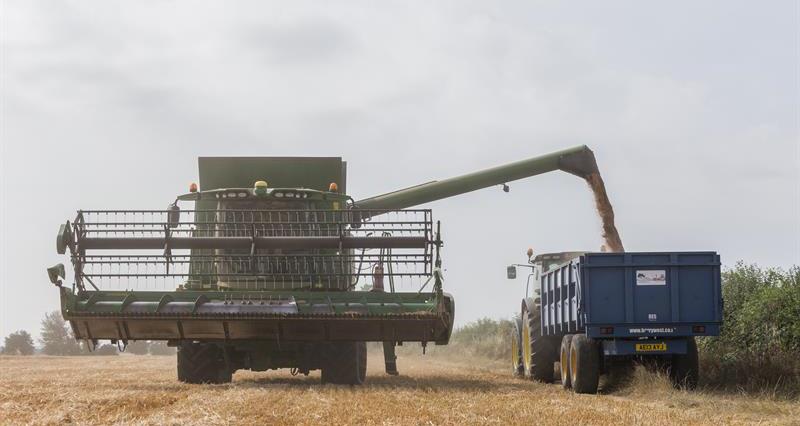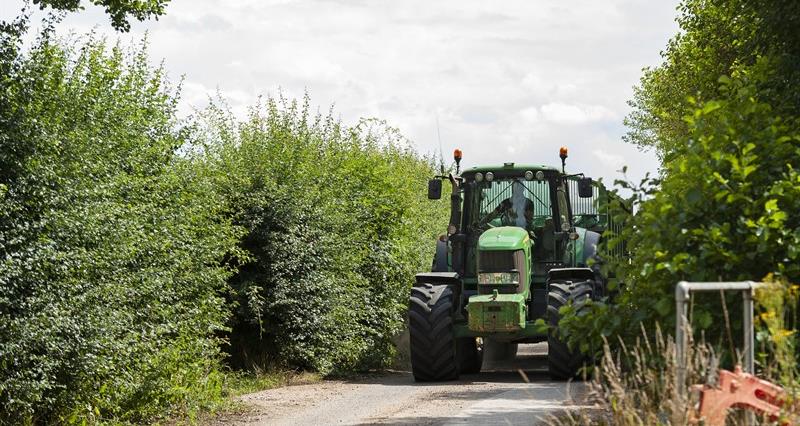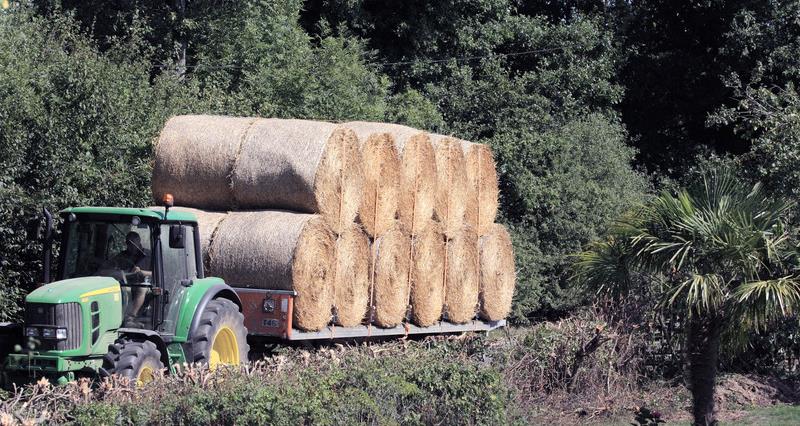Mud left on the road from farming activity is an ongoing issue and can affect other drivers, which has led to serious accidents in the past. Mud can cause drivers to lose control or to skid, leading to accidents. In adverse weather conditions, the risk of accident due to mud can increase greatly.
It is important to keep the matter on the forefront of your minds to take changing weather conditions and farming activity into account.
It's also worth remembering that the rules apply for any other material deposited onto the highway. For example, if grain or other produce is spilled this can represent just as serious a hazard as mud.
The law on mud on the roads
Farmers and vehicle operators who deposit mud on the road are potentially liable for a range of offences and may face prosecution and a fine.
There is a range of powers available to the police and the highways departments of local authorities. Most of the powers are laid out in the Highways Act 1980.
Section 148 of the act makes it an offence to deposit mud and other materials on the highway that would interrupt other users of the highway.
Section 161 of the act states: “If a person, without lawful authority or excuse, deposits anything whatsoever on the highway in consequence of which a user of the highway is injured or endangered, that person is guilty of an offence.”
Civil action
When mud has contributed to personal injury or damage to property, it is possible that civil action may be undertaken.
The presence of mud on the highway can constitute a public nuisance and loss or injury can result in a claim for negligence.
The act also gives the highways authority the power to recover any expenses incurred from having to clean an obstruction on the highway.
In addition, driving a tractor on the public highway with a significant amount of mud attached to it may be considered as ‘dangerous driving’ under the Road Traffic Act 1988. Under this act, section 2a states that the term ‘dangerous’ can include anything which is attached to a vehicle which can include mud.
Farmers also have obligations under the Health & Safety at Work Act 1974 and to look after the health and safety of themselves, their employees and anyone who may be affected by a working operation.
How can you prevent mud on the roads?
There are a number of actions that you must do to prevent or clear mud on the roads.
- Prevent mud from being deposited on the road in the first place: clear mud from vehicles before taking them out on the road.
- If there is a danger of leaving mud, use ‘slippery road’ or ‘mud on road’ signs to alert other road users. Make sure any road signs are positioned in a way that gives them maximum visibility and warning to road users.
- Ensure labour and equipment is available and suitable for the soil and weather conditions.
- Make an agreement with contractors as to who is responsible for mud left on the load, and ensure suitable public liability insurance is in place.
- Keep to low speeds when travelling short distances – this can help to keep mud on the vehicle.
Keep a log on your decision on whether or not to deploy signs or clean the road.
This ensure a written record has been kept surrounding the appropriate action that you have taken.



